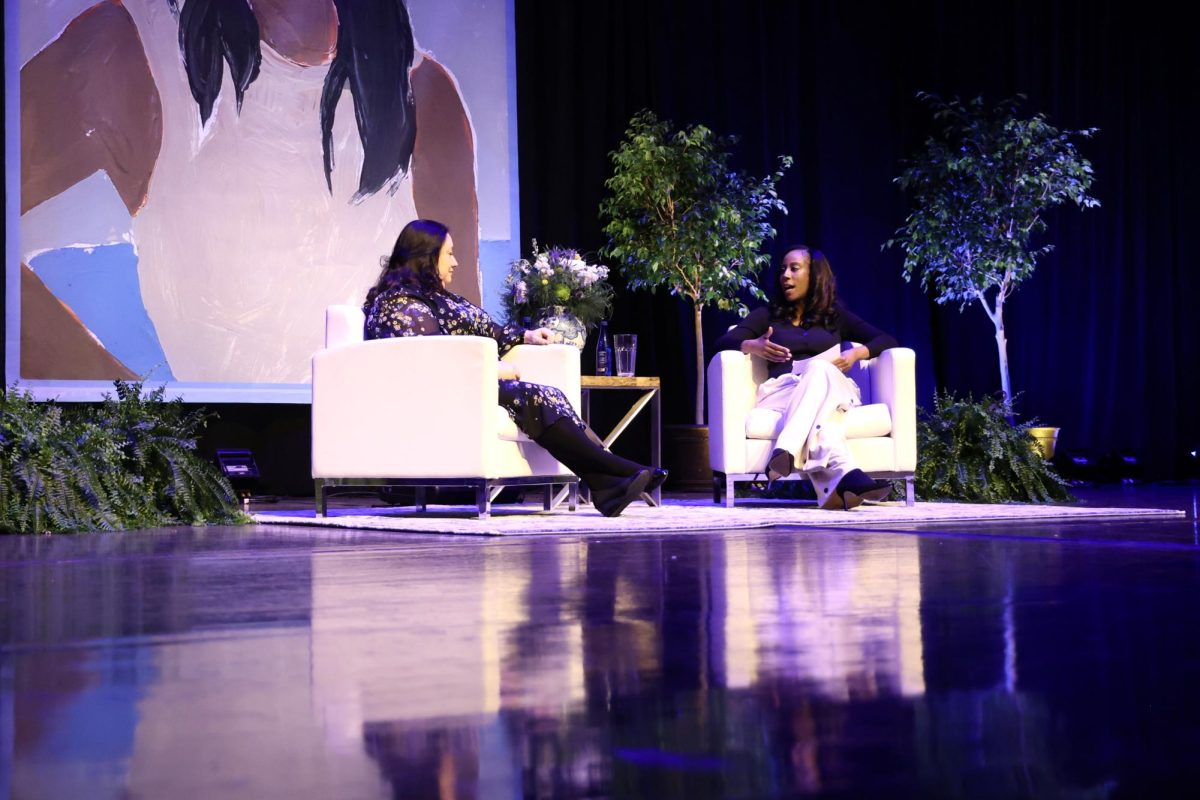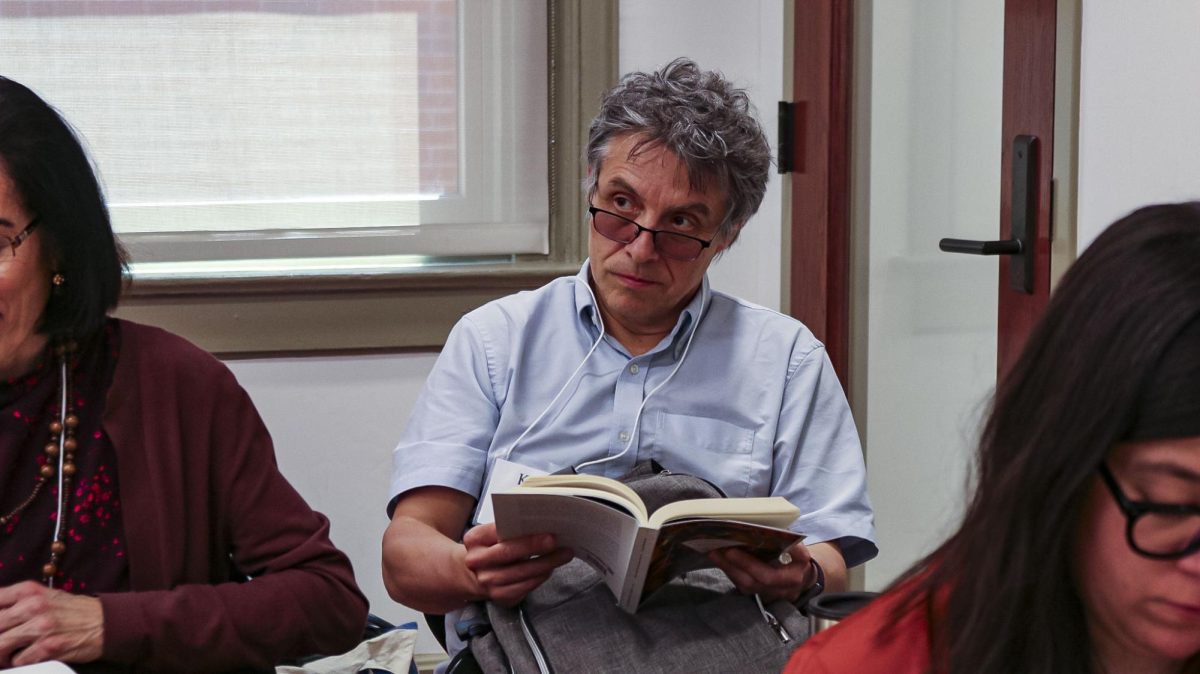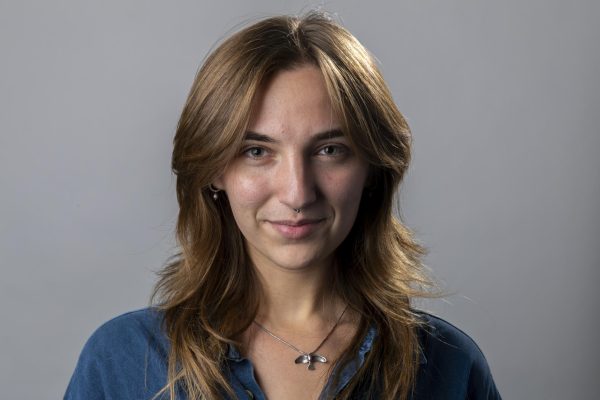Jenisha Watts, University of Kentucky alumna and senior editor of The Atlantic, an American magazine, spoke on campus about the future of journalism and her own experience as a journalist.
Watts graduated with a degree in journalism, and on March 20, she visited her alma mater to give a talk titled “The Future of Journalism and the Health of Our Democracy.”
She sat in the middle of the Singletary Recital Hall stage with a large display of the October 2023 cover of “The Atlantic” behind her, a painting of Watts. The crowd was filled with a mix of students and general public attendees all there to listen to Watts.
“They gave me the Michelle Obama treatment,” Watts said.
Editor-in-chief of The Atlantic, Jefferey Goldberg, was also supposed to speak alongside Watts, but was unable to attend. Jennifer Smith, assistant professor in the School of Journalism and Media, took his place.
The two discussed Watts’ autobiographical essay “Jenisha From Kentucky,” the lessons Watts took from the experience and the progress she has made so far in her journalism career.
Watts said she always had an interest in writing and storytelling. She wrote for the Kentucky Kernel when she was a student at UK.
“I remember seeing my photo in the newspaper … on campus, people would say ‘Oh, that’s the girl that writes for the kernel,’” Watts said. “I just really got into it, I kind of stayed with it.”
Smith asked Watts about her writing process for her essay and the choices behind writing a more intimate portrayal of Watts’s life and family that provided over 10 years worth of material.
“I had to write it in a way of Jenisha the character and not Jenisha the person, I had to detach myself a lot,” Watts said.
Watts said she was supported by the staff at The Atlantic during the writing process, and her editor-in-chief had told her she didn’t have to publish the story if she felt it was too personal or intimate.
Smith asked Watts if that knowledge freaked her out more. Watts said it did.
“But I had support, I think I was able to do that story because I had so much support,” Watts said.
While the essay was being written, Watts said The Atlantic had fact-checkers who would interview her family and other people to verify what she had written. She said she believes fact-checking is very important in journalism.
“You have Twitter, you have AI, you have deep fakes, all this different misinformation,” Watts said. “(Fact-checking) is more critical than ever now because you just don’t know.”
Smith asked Watts about journalism’s — and more particularly The Atlantic’s — role in the health of democracy.
“Maybe this person may be against a certain bill, maybe this person may be for it, but we need to have both perspectives for the reader,” Watts said. “That’s the biggest thing, making sure the conversation is nuanced, making sure we have a diverse perspective.”
Especially during an election year like 2024, Watts said it is important for a newsroom to cover everything. She said The Atlantic sent reporters to both Trump rallies and Cornel West’s campaign.
“Our job as journalists is to help break down complex social issues into things you can discuss around your kitchen table,” Smith said. “If you’re not doing that, then democracy is going to fail.”
When asked about their predictions for the future of journalism, Watts said she believed the subscription model would become more popular and would help smaller local newspapers.
“I think we’re going to see much more diverse storytelling, I think there are different faces and perspectives that are now showing up in media thanks to social media,” Smith said. “I think focusing on local news and what you can do in your community to make change will be really important.”


































































































































































